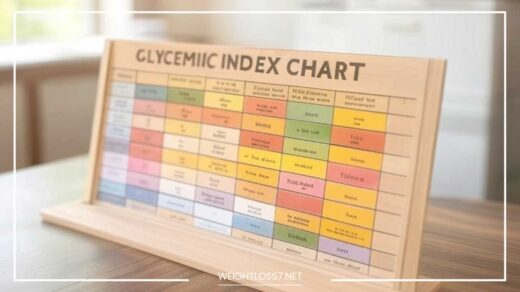How Can I Lose Weight

Lose Weight
Shedding Pounds for a Healthier You: How Can I Lose Weight? (An In-Depth Guide)
The desire to lose weight is a common one, and for good reason. It’s not just about fitting into your favorite outfit (although that’s a perk!), weight loss can significantly improve your overall health and well-being.
It can reduce your risk of chronic diseases like heart disease, type 2 diabetes, and some types of cancer. It can also boost your energy levels, improve your mood, and enhance your quality of life.
But with so much conflicting information out there, fad diets promising quick fixes, and conflicting social media messages, it can be confusing to know where to start.
This comprehensive blog post is your one-stop guide to healthy and sustainable weight loss. We’ll explore the science behind weight loss, unpack different strategies, and provide actionable tips to help you reach your goals in a way that feels good for your body and mind.
Understanding Weight Loss: Calories In vs. Calories Out
At its core, weight loss boils down to simple math: calories in versus calories out. If you burn more calories than you consume, your body will tap into stored energy (fat) for fuel, leading to weight loss. Conversely, consuming more calories than you burn results in weight loss.
Creating a Calorie Deficit for Weight Loss
To lose weight, you need to create a calorie deficit. This means consuming fewer calories than your body burns daily.
The recommended rate of weight loss is 1-2 pounds per week, which translates to a deficit of 500-1000 calories per day.
However, it’s important to note that this is a general guideline. Individual factors like age, sex, height, weight, activity level, and body composition can influence your calorie needs and weight loss rate.
Finding Your Baseline Calories: The Starting Point
The first step in creating a calorie deficit is to determine your baseline calorie needs – the number of calories your body burns at rest to maintain its current weight.
There are several online calculators and apps that can help you estimate this based on your age, sex, height, weight, and activity level. However, these calculators are just estimates.
For a more personalized approach, consider consulting a registered dietitian or using a website or app that allows you to track your food intake and weight over time. This can help you determine your actual baseline calorie needs and adjust your calorie intake accordingly.
Dietary Strategies for Weight Loss: Beyond Counting Calories
Once you know your baseline, you can start to adjust your calorie intake. Here are some effective dietary strategies for weight loss that go beyond just counting calories:
- Focus on Whole, Unprocessed Foods: Fill your plate with nutrient-rich whole foods like fruits, vegetables, whole grains, and lean protein. These foods are naturally filling and keep you satisfied for longer, reducing calorie intake throughout the day.
- Prioritize Fiber: Fiber is a type of carbohydrate that your body can’t fully digest. It promotes feelings of fullness and helps regulate digestion. Aim to include plenty of fiber-rich foods in your diet like fruits, vegetables, legumes, and whole grains.
- Healthy Fats are Your Friends: Don’t fear healthy fats! They play a crucial role in hormone regulation, satiety, and nutrient absorption. Include healthy fats from sources like avocados, nuts, seeds, and olive oil in your diet.
- Portion Control is Key: Even healthy foods can pack calories if you overeat. Use smaller plates, measure your portions, and focus on mindful eating. Pay attention to your hunger and fullness cues to avoid overeating.
- Limit Processed Foods and Added Sugars: Processed foods are often loaded with unhealthy fats, added sugars, and refined carbohydrates. These contribute to weight gain and offer little nutritional value. They can also be highly palatable, leading to overconsumption.
- Stay Hydrated: Drinking plenty of water can help curb cravings, boost metabolism, and promote feelings of fullness. Aim for around eight glasses of water per day, adjusting based on your activity level and climate.
Incorporating Exercise for Weight Loss and Overall Health
Exercise plays a crucial role in weight loss and overall health. It helps you burn calories directly and builds muscle mass, which further increases your metabolism and calorie burning potential even at rest. Here’s a breakdown of the importance of exercise for weight loss:
- Find Activities You Enjoy: Consistency is key, so choose exercises you find fun and can stick with in the long term. This could be anything from brisk walking, swimming, dancing, team sports, cycling, or yoga.
- Aim for at Least 150 Minutes of Moderate-Intensity Exercise Weekly: The Centers for Disease Control and Prevention (CDC) recommends at least 150 minutes of moderate-intensity aerobic activity or 75 minutes of vigorous-intensity activity per week for weight loss. Moderate-intensity exercise leaves you slightly out of breath and able to carry on a conversation. Examples include brisk walking, biking, swimming, or dancing. Vigorous-intensity exercise makes it difficult to hold a conversation. Examples include running, jumping rope, or interval training.
-
Strength Training is Important: Don’t neglect strength training! Building muscle mass helps burn more calories at rest and improves your overall fitness level. Aim for at least two sessions of strength training per week, targeting all major muscle groups. You can use bodyweight exercises, free weights, resistance bands, or weight machines.
-
Move More Throughout the Day: Incorporate more movement into your daily routine. Take the stairs instead of the elevator, park further away from your destination, or do some stretches or light activity during commercial breaks while watching TV. Every bit of movement counts!
Lifestyle Changes for Sustainable Weight Loss: Beyond Diet and Exercise
Sustainable weight loss goes beyond just diet and exercise. Here are some lifestyle changes that can support your journey and make healthy habits stick:
- Get Enough Sleep: When you’re sleep-deprived, your body produces more ghrelin (the hunger hormone) and less leptin (the satiety hormone), making you crave unhealthy foods and eat more. Aim for 7-8 hours of quality sleep each night.
- Manage Stress: Chronic stress can lead to weight gain through hormonal imbalances and unhealthy coping mechanisms like emotional eating. Practice stress-management techniques like yoga, meditation, deep breathing, or spending time in nature.
- Find Support: Surround yourself with positive and supportive people who encourage your weight loss goals. Consider joining a weight loss support group or finding an accountability partner. There’s strength in numbers, and having a support system can make a big difference.
- Mindful Eating: Practice mindful eating to develop a healthy relationship with food. Pay attention to your hunger and fullness cues. Eat slowly and savor your food. Avoid distractions like watching TV or scrolling through your phone while eating.
Remember: Weight loss is a journey, not a destination. There will be setbacks and challenges along the way. The key is to be patient, kind to yourself, and celebrate your non-scale victories. Here are some additional tips to keep you motivated and on track:
- Set SMART Goals: Make your goals Specific, Measurable, Achievable, Relevant, and Time-bound. For example, instead of saying “I want to lose weight,” set a goal like “I will lose 5 pounds in the next 3 months by walking for 30 minutes 3 times a week and reducing sugary drinks.”
- Plan Your Meals: Planning your meals and snacks in advance can help you avoid unhealthy choices when hunger strikes. It also helps you stay within your calorie budget.
- Read Food Labels: Pay attention to calorie counts and serving sizes on food labels to make informed choices. Be mindful of hidden sugars and unhealthy fats.
- Don’t Skip Meals: Skipping meals can disrupt your metabolism and lead to overeating later. Aim for regular meals and healthy snacks throughout the day to keep your metabolism fueled and prevent cravings.
- Track Your Progress: Keeping track of your weight, food intake, and exercise can help you stay motivated and see how your efforts are paying off. There are many apps and weight loss trackers available to help you with this.
- Focus on How You Feel: Don’t just focus on the number on the scale. Pay attention to how you feel as you lose weight. Do you have more energy? Are you sleeping better? Celebrate these non-scale victories as they are just as important.
Embracing a Healthy Lifestyle: Beyond Weight Loss
While weight loss can be a significant motivator for many, it’s important to remember that healthy habits are not just about reaching a certain number on the scale.
This journey is about creating a sustainable lifestyle that promotes overall well-being, improves your relationship with food, and fosters a sense of vitality. Here are some additional aspects to consider as you embark on your weight loss journey:
- Focus on Long-Term Health: Shift your mindset from quick fixes to long-term health benefits. By incorporating a variety of nutrient-rich foods, regular exercise, and stress-management techniques, you’re laying the foundation for a healthy and vibrant life.
- Nurture a Positive Body Image: Developing a healthy body image goes hand-in-hand with sustainable weight loss. Practice body positivity and self-compassion. Celebrate your body’s strength and capabilities, and appreciate the amazing things it allows you to do.
- Find Joy in Movement: Move your body in ways you enjoy! Explore different activities like dancing, hiking, rock climbing, or team sports. When exercise feels like fun, you’re more likely to stick with it in the long run.
- Cook More at Home: Cooking at home gives you greater control over the ingredients in your meals. This allows you to use healthier cooking methods, limit processed foods, and adjust portion sizes. Experiment with new recipes and discover healthy cuisines that excite your taste buds.
- Don’t Deprive Yourself: Restrictive diets can often lead to feelings of deprivation and cravings. Allow yourself occasional treats in moderation. Aim for an 80/20 approach, focusing on healthy choices 80% of the time and allowing for flexibility 20% of the time.
- Listen to Your Body: Pay attention to your body’s hunger and fullness cues. Eat slowly and savor your food. Stop eating when you’re comfortably full, not stuffed.
- Make Gradual Changes: Trying to overhaul your entire lifestyle overnight is unsustainable. Start with small, manageable changes that you can gradually integrate into your routine. As you build success, you can add more challenges.
- Celebrate Non-Scale Victories: Don’t get discouraged if the weight doesn’t come off as quickly as you’d like. Celebrate your non-scale victories! This could be anything from having more energy to climb the stairs without getting winded, to having better sleep, or feeling more confident in your clothes.
Building a Sustainable Support System
Losing weight and adopting healthy habits can be challenging. Having a strong support system can make a world of difference. Here are some ways to build your support network:
- Find an Accountability Partner: Partner up with a friend, family member, or colleague who also has weight loss goals. You can motivate and support each other, share healthy recipes, and hold each other accountable.
- Join a Support Group: Connecting with others who are on a similar journey can be incredibly helpful. Support groups can provide a safe space to share your experiences, challenges, and successes.
- Seek Professional Help: If you’re struggling to lose weight on your own or have underlying health conditions, consider consulting a registered dietitian or therapist. They can provide personalized guidance, support, and address any emotional or psychological factors that may be impacting your weight loss efforts.
Remember, you are not alone on this journey. Embrace the process, celebrate your progress, and enjoy the incredible health benefits that come with adopting a healthy lifestyle.
Consulting a Healthcare Professional for Personalized Guidance
If you have underlying health conditions, a history of disordered eating, or are struggling to lose weight on your own, it’s important to consult with a healthcare professional or registered dietitian.
They can create a personalized weight loss plan that is safe and effective for you, taking into account your individual needs and health history. They can also provide guidance on managing any underlying conditions that may be affecting your weight.
Remember, weight loss is a journey, not a race. By making sustainable lifestyle changes and adopting healthy habits, you can reach your goals and improve your overall health and well-being.
This blog post has equipped you with valuable knowledge and practical tips to embark on your weight loss journey and cultivate a healthy lifestyle.
Remember, consistency is key. Be patient with yourself, celebrate your victories, and enjoy the process of creating a healthier and happier you!

















